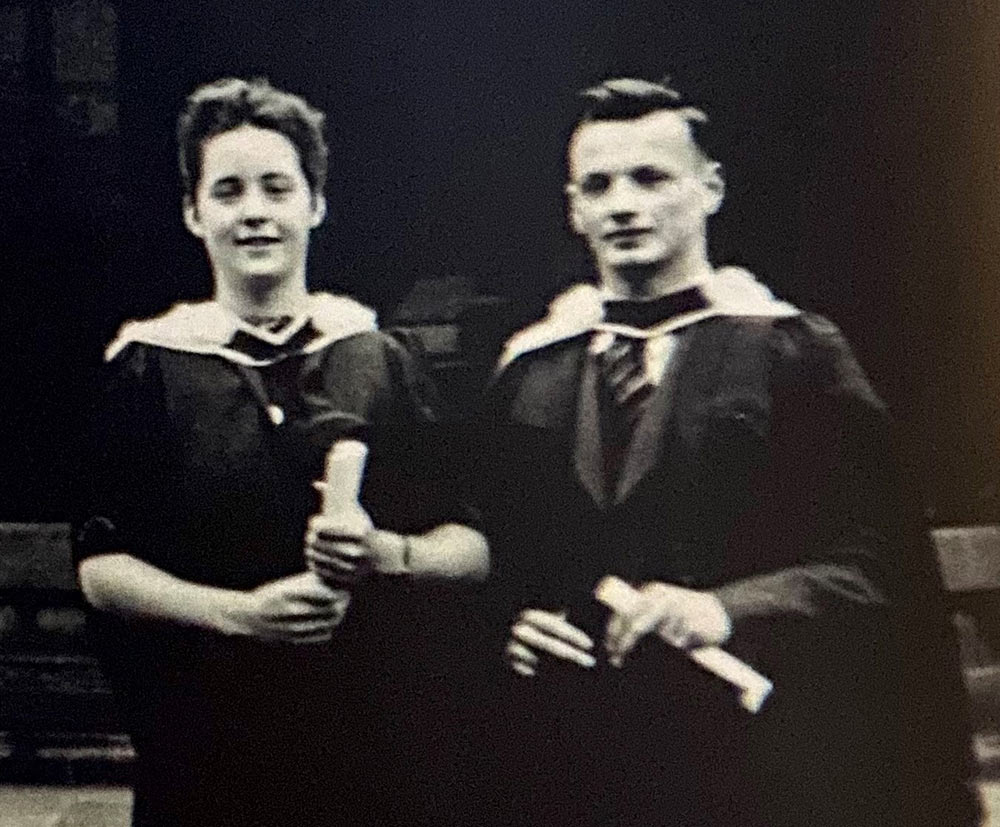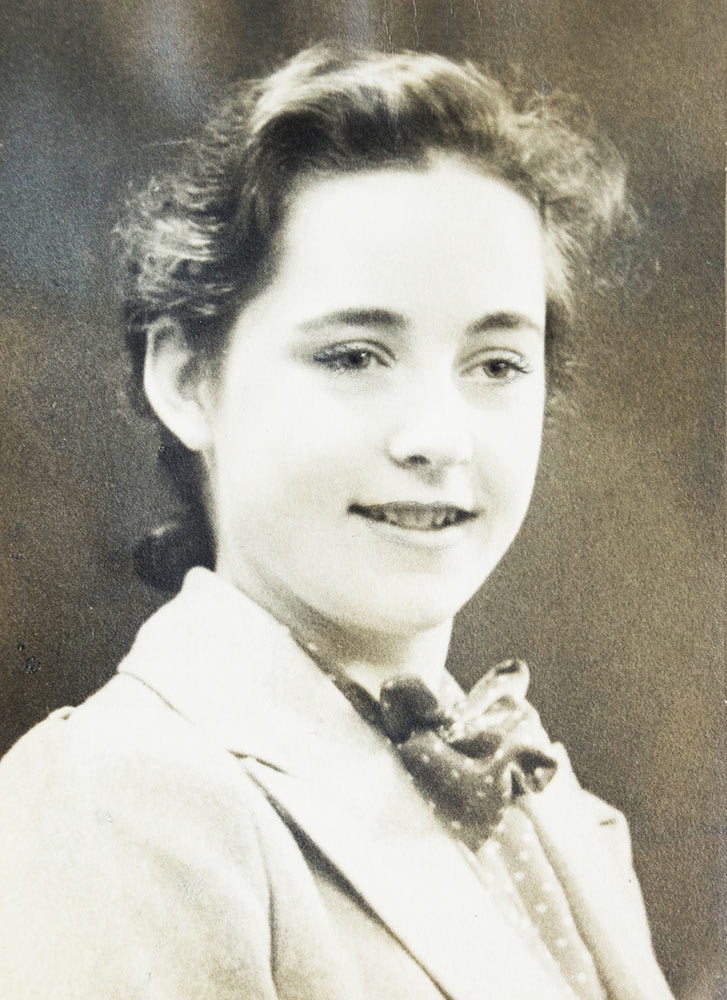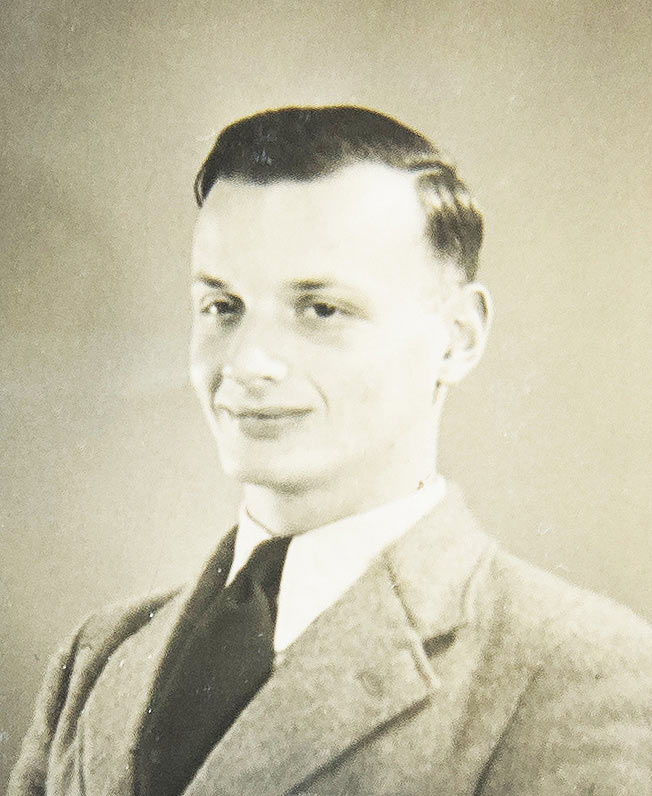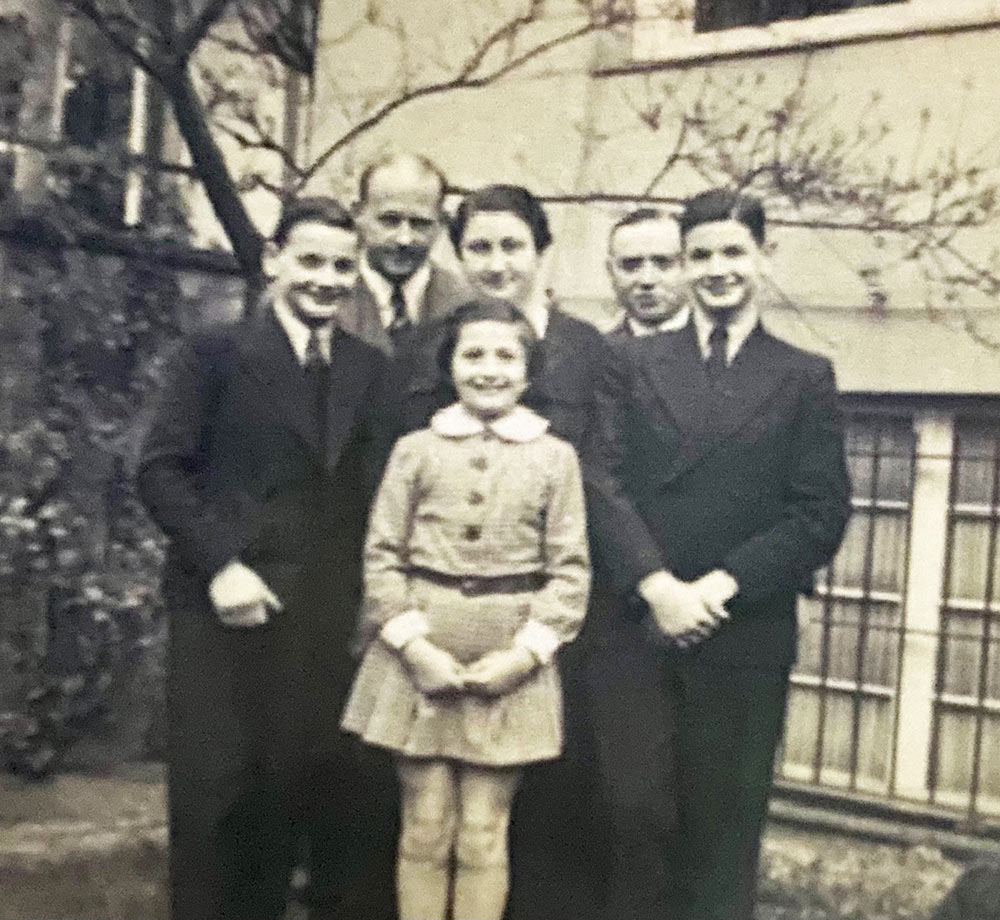Swipe to read
Vernon was arrested on 17th July 1940 and taken to Prees Heath internment camp in Shropshire. In a later diary entry, he describes this experience.
Read Transcript
“I was still asleep when two detectives knocked on my door of my bedroom. I knew why they had come, internment … They gave me three-quarters of an hour to pack up my belongings. I asked them whether I could still go to the phone box, they didn’t mind. I packed my few belongings in a terrible speed … but I decided to phone you [Joan] first, they could wait … I could barely talk, it was as if I was going to suffocate … I just simply couldn’t say a thing. I was just on the point of breaking down. I would have liked a good cry but there wasn’t time for it. I had to hurry back to finish my packing … I had a bit of breakfast and about an hour later they reappeared. Some documents regarding my property had to be signed and then I moped off with a very heavy heart. I had lost my freedom. I was now a prisoner and a prisoner for what? One of those questions for which there are no solutions.
… Of course, I had no idea where we were going … Two hours later we arrived at the camp consisting of tents only but more barbed wire than anything else. What a sight. What else did I see? Soldiers with fixed bayonets and how many of them, so we were regarded as criminals and murderers as well.”
Vernon’s diary reveals the psychological impact of internment on Vernon and his fellow inmates, as described in this extract written while at Huyton Camp, Liverpool on the 12th September 1940.
Read Transcript
“This camp is simply unbearable; you have no idea how much I really have to suffer. I admit it is not physical pain, I get enough to eat (although fairly monotonous); I don’t get any sort of corporal punishment – heaven forbid that I should, but I dare say that I would endure the pain for a longer time than this mental torture. I can’t repeat it often enough that you simply can’t imagine it unless you have actually experienced it. To be with 2000 people in one camp where normally 400 live causes great discomfort, but I will neglect all this, but to see 2000 gloomy faces all day long, is a horrible sight – unbearable. I do go to lectures; but why? I don’t think out of mere thirst for knowledge but to distract my attention. My concentration powers are very small … Why do I teach? Simply the same reason … I simply have to occupy myself somehow, merely to stop thinking, otherwise I will be soon overpowered by this mighty camp enemy, insanity.”
Vernon sailed to his final internment camp on the Isle of Man on 16th October 1940. His diary describes his feeling when arriving at Sefton.
Read Transcript
“Almost four hours later I saw the first landfall, the Isle of Man, my new home; my new prison would be a little more precise … We disembarked; it was a pity that the journey was ended then. I could have gone on for days with a weather and sea like that … Well, here I am again behind barbed wires, the sight of which makes me sick. This camp is one large hotel and several adjoining boarding houses in a side street: that’s all. The hotel is a promenade about 400 yards from the harbour … that’s all we have regarding walking space. Here we not only face the sea … but the whole life of Douglas … Young couples just like us two walking down the road arm in arm. The real life is constantly presented to me and yet I am banned from taking part in it by a few inches of barbed wire … Everybody outside looks this way, you are being stared at just like monkeys in the zoo.”
Vernon was finally released from Sefton Camp on 10th December 1940. His delight at this news is evident in his diary extract two days earlier.
Read Transcript
“Released!!! Released!!! Can you believe it? This magic word. I simply don’t know what to say. ON Tuesday I shall be going back to Manchester. Just two more days. I am counting the hours, minutes before I see you. I am so happy. On Tuesday! Joan! My darling! What a reunion! I am sure I cannot sleep tonight and other to follow … It’s real! Unbelievable!”



